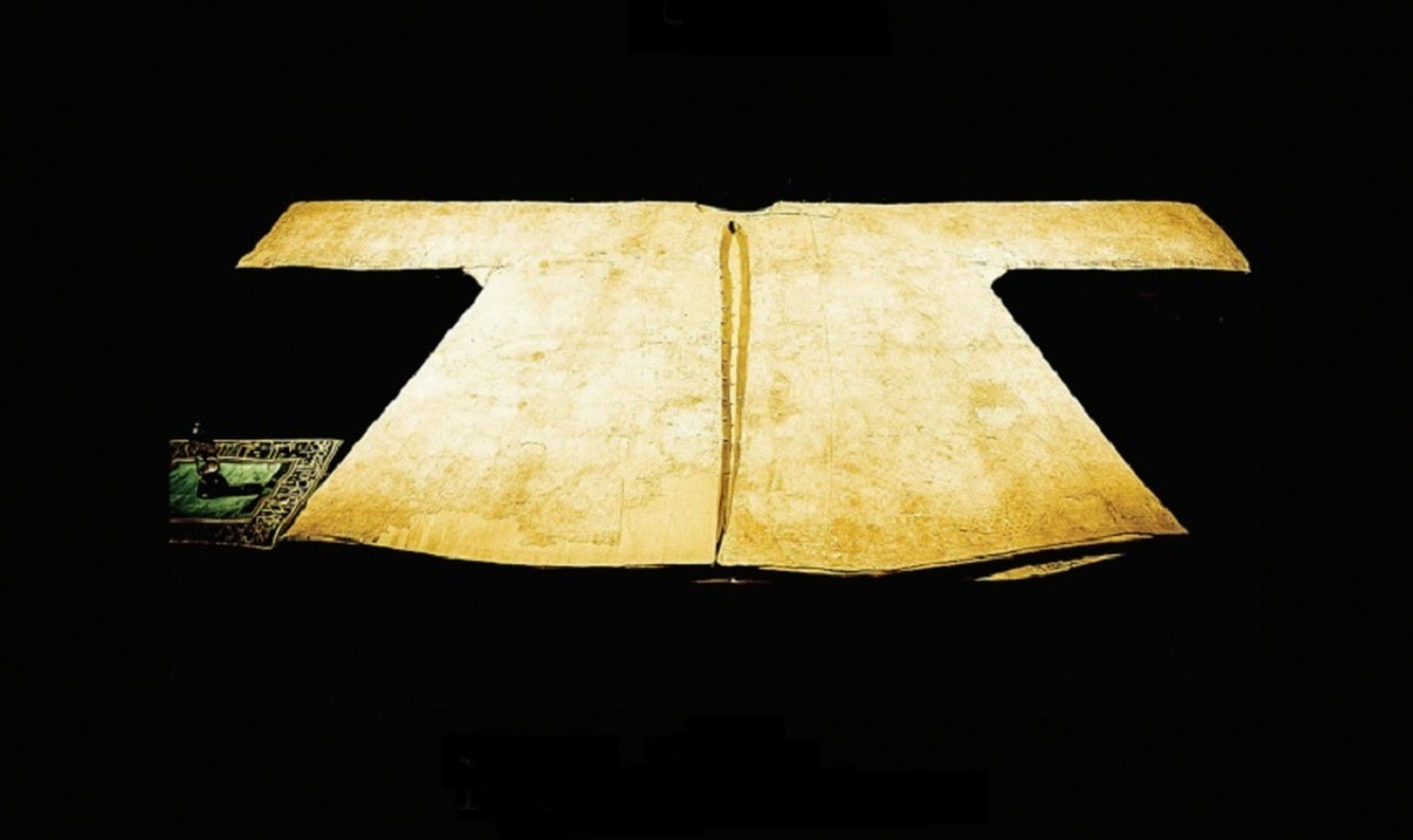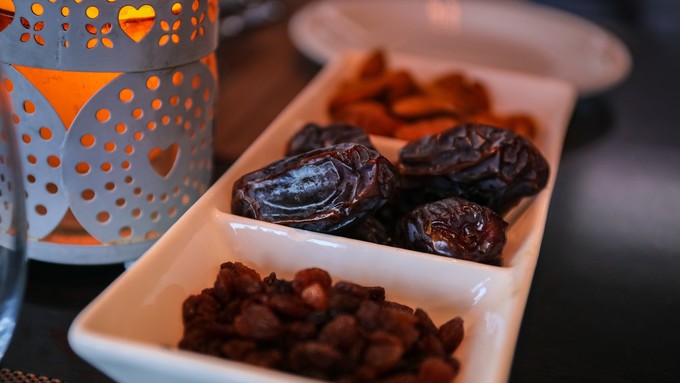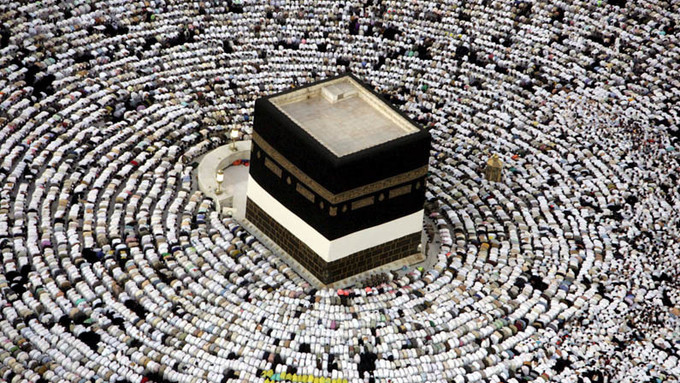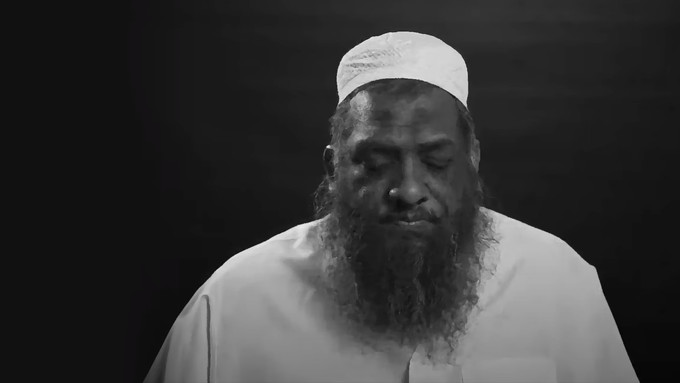Translating Love With the Burdah: Mostafa Azzam

Mostafa Azzam is the author of the first ever singable English translation of the Burdah, Imam Busiri's classic poem in praise of the Prophet ﷺ. He graciously discussed the book, its significance and his reflections on the project with ImanWire. Selections from the interview are provided below.
ImanWire: Before discussing your translation of the Burdah, how would you introduce and describe the Burdah to someone who is unfamiliar with it?
Mostafa Azzam: To many, Imam Busiri’s Qasidat al-Burdah is very familiar. To some, it is familiar without them realizing. They recognize it by its chorus. Some even just call it, “Mawlaya salli wa sallim..."
I think I'll introduce both Imam Busiri’s original Arabic Qasidat al-Burdah and this English rendition, The Burdah, with a part of my dear brother Abdul Aziz Suraqah’s foreword from my book — he also produced a complete translation commentary on the Burdah:
“Qasidat al-Burdah of Imam Sharaf al-Din al-Busiri stands as an enduring testament to the power of poetry and its transformative effect on the soul. It is arguably the most famous poem ever written in praise of the Best of Creation, the Prophet Muhammad ﷺ. The Burdah is ultimately about two things: love and redemption. The secret behind its privileged position among prophetic praise-poetry is the brokenness and sincerity of the author when he composed it.”
Why does The Burdah hold such esteem in the hearts of Muslims?
Firstly, because the Prophet ﷺ, holds such esteem in the hearts of the Muslims. And the closer the connection something or someone has to him, ﷺ, the greater our esteem for that something or someone.
Second, the Prophet ﷺ graced Imam Busiri and visited him in a dream, and wrapped his burdah, his coat, around him. That alone gives this poem a very special connection to the Prophet ﷺ.
Third, as is evident throughout the Burdah, Imam Busiri came to the Prophet ﷺ empty-handed, with no claim to name or fame.
And lastly, love. Love is an incredible connector. And Imam Busiri’s love is obvious. As he describes in the very first chapter, true love is hard to hide. And his love is obvious. How do we know the power of love as a connector? From the Prophet ﷺ himself, who said, “A man is with whomever he loves,” and “You are with whomever you love.” So the love that flows so blatantly through Imam Busiri’s poem is an indicator of the poem’s close connection to the Prophet ﷺ.
What was your inspiration in writing this translation of The Burdah? What do you think of the other English translations of The Burdah? Was there something about these previous translations that motivated you to attempt a translation of your own?
Insha’allah, the inspiration was Rasul Allah ﷺ.
As for a more detailed answer, I think to fully appreciate the answer, people will have to read my preface to The Burdah, which I’ve entitled “A Journey in Love.” In a sense, the inspiration for it was a journey, with many steps. As I mention in the preface, “This text has been a lifetime in the making.”
You can also watch the interview with Al-Madina Institute I did on why I translated the Burdah:
Shaykh Mokhtar Maghraoui has praised and complimented your translation as one of high merit. What are your thoughts on this? What type of training did you receive that assisted you in translating The Burdah?
Whenever you put an effort out into the world, there may be people that love it and people that hate it. If it’s not polarizing, then it’s probably not special. And so you don’t need everyone to like it. What you need is for the right people to like it. It makes me very happy that Shaykh Mokhtar likes my rendition of the Burdah.
I have spent time with Shaykh Mokhtar personally, and I have witnessed what a beautiful, special human being he is. Allah bless him and preserve him. What makes me really appreciate his praise of this rendition is his relationship with words. Shaykh Mokhtar is a man of precise words. He pays a lot of attention to word choice, so if he approves of the word choices in this rendition of the Burdah, I consider it an honor.
As for what type of training I received that assisted me in translating the Burdah, so many differing life experiences; it was as if they all led up to this particular undertaking. But at the end of the day, these things come as gifts received through His generosity.
What has been the biggest challenge in this project?
The whole endeavor was overwhelmingly difficult. I actually thought it was impossible. Understanding Imam Busiri’s Qasidat al-Burdah with enough precision to translate it, and then finding the right words to express the meanings in English, and then choosing wording that is accessible and understandable to English speakers, and then putting it in meter consistent with the Arabic, and making every verse rhyme.
I think that last point was one of the biggest challenges: making every verse rhyme. Qasidahs in Arabic have all their verses in a single rhyme repeated throughout. Meaning you might have a thousand-line poem (or longer) all ending with the same sound. Qasidat al-Burdah, for example, being a “mimiyyah,” has all of its 160 or more verses ending with “mi”: “kullihiMI,” “bidaMI,” “IdaMI,” etc. But English is not built around suffixes the way Arabic is, so maintaining the same rhyme throughout an entire poem is virtually unheard of. Rather, English will, for example, make one line of a verse rhyme with the next line of it, and then the first line of the next verse rhyme with the second line of it. So each verse can have its own independent rhyme, instead of maintaining the same rhyme for tens or even hundreds of verses.
But you know what might have been the biggest challenge of all in this project? Consistency. When I decided to undertake it, I committed to translating at least one verse every day. Whether it took under an hour or it took most of my day, I had to complete at least one verse.
You know, whatever challenges there were along the way, the Muhammadan aid, madad, could be felt. Honestly, I’m not even a hard worker. This project was not my career, my livelihood, my discipline. It was only that Muhammadan aid that Allah granted which allowed the overcoming of all obstacles.
It is said that writing The Burdah cured Imam Busiri of paralysis. Can you speak on that?
Abdul Aziz Suraqah’s words from the foreword to The Burdah speak on this — readers can read more about it there.
I’ll mention one thought: some people imagine that the miracles of the Prophet ﷺ ended with his passing from this world. But the scholars (`ulama) and saints (awliya), and even the masses of common people throughout Islamic history, all recognize that his miracles continue from his life in the grave. And some fortunate ones are blessed to be touched directly by him and his miracles, ﷺ.
Such is the miraculous touch of the Prophet, ﷺ. As the Burdah says in verse #85:
How many times has his palm by touch relieved the unwell,
And freed the helpless from in the noose of insanity.
In the course of translating The Burdah, what new things did you learn that piqued your interest?
Probably too many to list. But one of the most fascinating experiences is how the Burdah has touched my daily life and impacted my consciousness. How often something happens in my day that reminds me of a line from the Burdah and reconnects my consciousness to the Beloved ﷺ.
The Burdah is so filled with metaphors and references. If I come across something mentioned in the Burdah, it reminds of the Beloved ﷺ. I remember, for example, walking in the park and seeing a willow tree. I was immediately brought back to the verses at the end of the Burdah:
159) Let clouds of blessing from You, unending, rain down upon
The Prophet, with pouring rain so heavily, steadily.
160) For longer than willow branches by the east wind are swayed;
And camel drivers excite the camels with melody.
I also notice how frequently matters of the ego remind me of a verse from it, as the Burdah’s discussion of the ego is so on point and illuminating.
Another example is how much I see humanity struggling and I’m reminded of verses from the Burdah and its overall message of hope. Hope in Allah through the Beloved of Allah ﷺ.
145) If I engage in a sin, my covenant isn’t void
With him, the Prophet; nor is the rope dissevered from me.
In reading your translation of The Burdah, it appears that there are many subtle or discreet historical references and theological beliefs that would require further research to be fully understood and appreciated by the reader. Would you agree? Why or why not?
Absolutely. The Burdah is, generally speaking, to those who already have quite an active relationship with the Prophet ﷺ.
And even those who are already quite familiar with the life of the Prophet ﷺ may be unfamiliar with a number of the references. That is why the Burdah should be taught and studied. The Burdah is a synopsis of the subject matter and is meant to be spelled out by teachers and scholars. That’s why there are countless commentaries on Imam Busiri’s Qasidat al-Burdah and why it continues to be taught to this day.
I wouldn’t recommend that someone without sufficient background and context do “further research” on his/her own, but rather study it with a teacher. Those who want to be able to appreciate the Burdah and don’t have a teacher to learn it from would benefit from learning the life of the Prophet ﷺ in general, from attending sirah classes and talks about his life.
One last point: in your question about the Burdah, you mentioned “the reader.” Remember that the Burdah does not have readers; it has singers. It is meant to be sung and experienced, not read and observed.
Having spent so much time immersed in the text of the Burdah, could you share some thoughts and reflections on this couplet about Prophet Muhammad ﷺ in Chapter Three:
‘The peak of knowledge about him is that he is a man
And is the best of Allah’s creation, entirely.’
Whole books have been written expounding those meanings. There is the best of creation. And there is the rest of creation. That’s really all there is to it. The Prophet ﷺ has the most special place with Allah. There are countless examples demonstrating that. Among them is the Ascent, the Mi`raj, in which Allah had the Prophet ﷺ leave all other creatures behind; no human, no jinn, no prophet, no messenger, not even the archangel Jibril, `alayhi l-salam, could join the Prophet ﷺ in the presence of Allah.
Allah also reminds all of creation of the superiority of the Prophet Muhammad ﷺ over the rest of creation on that most significant day, the Last Day, the day when all will be gathered. When we all be helpless before Allah, everyone will be scrambling looking for help among the favorites of Allah from His creation. They will look to our masters Adam, Ibrahim, Musa, Isa (`alayhimu l-salam) for help, for someone very special to ask Allah to manifest His mercy upon us. All of them will profess, “Lastu laha,” “I am not the one for it.” Until everyone is eventually directed to the best of all creation, Muhammad ﷺ, who will be the only one that can respond, “Ana laha,” “I am the one for it.”
In the first line of the couplet you quoted, “The peak of knowledge about him is that he is a man,” we are reminded of his closeness ﷺ. If he were a different species, something else, an angel, for example, or some other creature, he wouldn’t be as relatable to us. And in the second line of the couplet, “And is the best of Allah’s creation, entirely,” we are reminded of his distance, his highness, his tremendousness, his exaltation. So with those two lines, we are reminded of our entire relationship with the Prophet ﷺ, a relationship of love and reverence.
This may be difficult to answer, but is there any particular couplet in the Burdah that is your favorite or has moved and inspired you the most?
Part of me has always avoided answering this question. How could I possibly choose a favorite couplet? The Burdah is so filled with beautiful couplets containing such beautiful meanings.
But perhaps the verses in the Burdah that resonate with me extra are the verses addressing our relationship with the Prophet ﷺ. Those verses addressing his nearness to us, for example:
148) Far be it from him to bar the aspirant of his gifts,
Or send away in dishonor from him a refugee.
Soon after that, I learned that that couplet is inscribed on the back of the lock to the chambers of Lady Fatimah, `alayha l-salam, by the resting place of the Prophet ﷺ. So its specialness to me increased even further.
On the front of the lock is also a couplet that has a special place in my heart, and it also talks about our relationship with the Prophet ﷺ:
36) He is the loved one whose intercession we’re hopeful of,
At every horror to hit—yes, every calamity.
So if I had to pick a favorite couplet or two, I might pick those that are at the door of Lady Fatimah, `alayha l-salam. Not just because they speak so beautifully of our relationship with the Prophet ﷺ, but because they are at her door, in particular.
How do you wish your contribution to be received by readers?
With love. Prophetic love. And unabashed singing of his love and praise. ﷺ.
Also, hope. As I mention at the end of my preface to The Burdah, the Burdah is a poem of hope. One of the many beautiful things about Imam Busiri’s Qasidat al-Burdah is the broken state in which he presents it, making no claims to loftiness. Because the Burdah is not just for the saint and the scholar; the Burdah is for saint and sinner alike, for scholar and layman alike. It is a poem that allows every single one of us to say with our state:
Lord, my hope in You is not through my deeds;
My hope in You is through the Chosen One.
I come to You with grave sins on my back;
But with Muhammad upon my tongue.
The Burdah: The Singable Translation of Busiri's Classic Poem In Praise Of The Prophet , translated by Mostafa Azzam is available for purchase here.
Faith & Spirituality Related Articles

5 Practical Steps To Get You Ready for Ramadan
As Ramadan is less than a month away, we might feel we often haven't done enough to prepare for it. Here are 5 things we can do right now during Shaban to make sure that we get the most out of Ramadan. The Prophet (Peace & Blessings upon Him & His Family) supplicated,” O Allah give us the blessings of Shaban and give us the treasure of Ramadan.”

Hajj at Home: Kindling the Spirit of Arafah
Even if we are not on Hajj this year, our situation is no different. We navigate through the complexities of our daily life, immersed in the never-ending responsibilities of work and family, inundated with the intrusions of technology and social media into every minute of our lives, moving from place to place and idea to idea.
